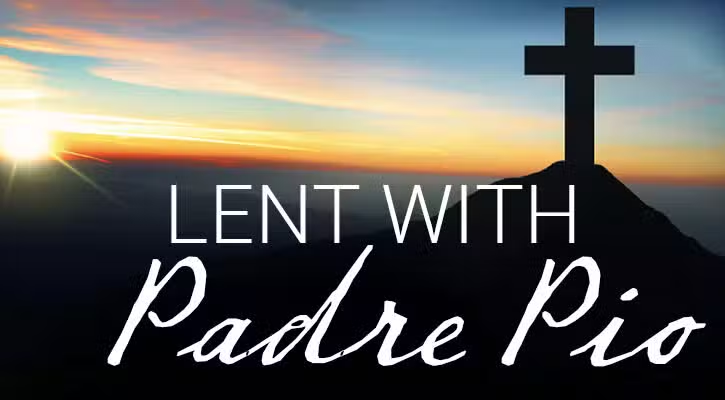Weekly Mass nourishes our spiritual lives. But what about the other six days of the week?
It has been said that “too late we come to wisdom,” and I’ll agree. My husband, Joe, and I married in 1960, shortly before Vatican II. By the time the changes in the Mass were being explained, we were in the throes of raising our six children, born in a 10-year span. The days were full, sometimes frantic, and often harried. If the concept of the “domestic church” was introduced, I was too busy to have the message penetrate my consciousness to see how intimately connected God was with us on a daily basis. If only I had known then what I know now!
Oh, we went to church every Sunday, the six kids in tow, and they went to Confraternity of Christian Doctrine (CCD) classes. We said the blessing before meals and heard bedtime prayers. I knew intrinsically that family life was holy, but I didn’t really make the connection that, as we left after Mass, we were celebrating what I’ve come to think of as “the liturgy of everyday life” in our domestic church the six days until the following Sunday.
Several years ago, after our kids were grown and had kids of their own, I looked back and was amazed to see the connection between the components of the Mass the priest celebrates on Sunday and what, in a very real way, we lived out every day.
The Liturgy of the Word: Family Stories
The realization happened while sitting in my prayer chair early one morning. I had been thinking about our family as the domestic church, and how it is “the church of the home.” In the stillness, snippets of times and places, people and events came into focus. In no particular order, memories simply bubbled to the surface of my mind. I heard my husband say, “Good morning, dear! Is the coffee ready?” and then one of the girls say, “I’m sorry I didn’t ask if I could borrow your blouse; I know I should have.”
Noticing the tin trunk my maternal grandmother brought from Scotland, I was reminded of how dear she was to me. In my mind’s eye I saw the relish dish—the one with the hand-painted violets—that had been on my paternal grandmother’s table, and then my mother’s wedding dress that hangs in the bathroom. A lush brown velvet, it is too pretty to be kept in a trunk. I feel her presence when I see it.
At some point, it occurred to me that I had heard a “greeting” and a “penitential rite,” as well as having been in touch with my family’s “Old Testament.” It was then that I began to see a connection between what is celebrated in our parish church and what takes place in our domestic church, the church of the home.
Now I recalled “Gloria” moments: the wonder Joe and I experienced when we looked into the face of each of our newborn babies, my delight in smelling lilacs in May, and our fascination with the hummingbirds outside our windows. Then I remembered that I hadn’t written our six children their monthly letter updating them on what is going on in our lives—and how I cling to this tradition of letter writing. Letters and texts, I realized, are the “New Testament” of the domestic church.
I remembered how the good news of the day was shared at the dinner table; in actuality it was our “Gospel.” But it wasn’t always good news. Jesus had more than a few painful moments; and so it was with us. But it was in sharing the good that joy was experienced, in sharing the difficult that the load was lightened.
I recalled, too, the number of times we’d done our best to make clear to our kids the difference between right and wrong. Although they hadn’t always gotten the message, we’d tried to instill in their minds that with every choice—good or bad—comes a consequence. Better the choice be good! Homilies, that’s what those lessons were, and there were a good many, often dredged up from the archives as each child reached the age of reason.
Later, words I’d read in Father Ronald Rolheiser’s book The Holy Longing came to mind: “God takes on flesh so that every home becomes a church, every child becomes the Christ Child, and all food and drink become a sacrament.”
So there it was. In a very real way, parents, by virtue of the sacraments they have received, are the presiders in their church of the home. Our daily lives are laced with holiness and, when Sunday comes, we return to our parish, where we celebrate with other families all that has transpired during the week. As the priest presides, collectively we ask forgiveness; we listen to the readings from Scripture; we hear a homily; we celebrate what we did in our church of the home the six days until Sunday. It came to me that, as presiders in the domestic church, our vestments are an apron or a chef’s hat; our vessels are mixing bowls and platters.
The Liturgy of the Eucharist: Mealtime
My thoughts then moved from the Liturgy of the Word to the Liturgy of the Eucharist. Like greetings and penitential rites, “prayers of petition” can happen anytime, anyplace. When an ambulance siren is heard or another act of violence occurs or a friend is diagnosed with cancer, what do we do but ask God to be present?
In my mind’s eye, I saw our family one long-ago Sunday, bringing the gifts to the altar during the offertory. Our teenagers had been a bit embarrassed, but it had given me pleasure. It hadn’t occurred to me at the time how many times the “offertory” occurred during the six days till Sunday. Wasn’t Joe’s paycheck that provided for our family an offering? Wasn’t driving the carpool offering my services? And what about teaching CCD or being a Scout leader? Hadn’t those been offerings to invest in our kids’ futures? And when we reached out to the needy, weren’t we offering our hands as Christ had? The kids had made offerings, too, when they set the table, walked the dog, or made their beds.
More memories surfaced. Now I saw myself standing at the kitchen sink. Without realizing it, I had entered into the “eucharistic prayer” of the domestic church. Apron on, I was peeling potatoes for dinner. Through the window over the sink, I watched as the kids played a game of Wiffle ball in the backyard. Joe drove in from work, and they ran to greet him.
I couldn’t hear what they said, but watched as he put his briefcase down, took off his suit coat, and went over to pitch to the next batter. I had no idea at what point the peeler paused, but when I returned to the potato in hand, there were tears running down my face, tears that had welled up from deep within without my knowing. My heart was full of gratitude. That’s what Eucharist means: thanksgiving.
I didn’t see if there was a need for a “sign of peace” in the ball game, but it wasn’t uncommon! I remember calling them all in for dinner, but before coming to the table, hands needed to be washed—an “Oh, Lord, I am not worthy” act, if you will. Joining hands, we said the blessing and then took “communion”: We ate the meat, the potatoes and gravy, and the salad that nourished our bodies in the same way the Eucharist nourishes our spirits.
What about the “final blessing”? I remember listening to their bedtime prayers. “Now I lay me . . .” when they were little, and as they grew older, the Our Father and Hail Mary. And for us, for all married couples, what greater blessing at day’s end than becoming one with Christ in the act of love?
Every Day of the Week Is Sacred
All of these thoughts happened long ago. I reflect on them today and wonder: Why was it that I didn’t make the connection during our child-rearing years? Why did this all come to me after the fact? And why, all these years later, isn’t more attention given to the beauty of the church of the home—the family?
I now see how sacred family life is and that parents are the presiders in their church of the home; that there truly is a liturgy of everyday life that is lived out during the six days till Sunday. It doesn’t happen in a prescribed order, yet, if you look closely, you’ll see that your everyday lives are a prayer.

Pope Francis on the Domestic Church
- “Our families, our homes, are true domestic churches. They are the right place for faith to become life, and life to become faith.“
- “These little gestures [of love] are those we learn at home, in the family. They get lost amid all the other things we do, yet they do make each day different.”
- “They are the quiet things done by mothers and grandmothers, by fathers and grandfathers, by children. They are little signs of tenderness, affection, and compassion.”
- “Like the warm supper we look forward to at night, the early lunch awaiting someone who gets up early to go to work. Homely gestures. Like a blessing before we go to bed, or a hug after we return from a hard day’s work. Love is shown by little things, by attention to small, daily signs, which make us feel at home.”








